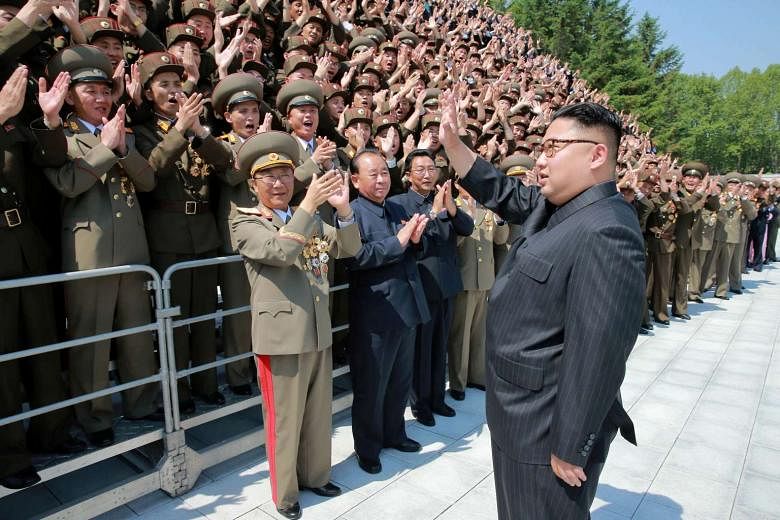UNITED NATIONS (REUTERS) - The UN Security Council on Friday (June 2) expanded targeted sanctions against North Korea after its repeated missile tests, adopting the first such resolution agreed by the United States and Pyongyang's only major ally China since President Donald Trump took office.
The Trump administration has been pressing China aggressively to rein in its reclusive neighbor, warning that all options are on the table if Pyongyang persists with its nuclear and missile development.
The United States has struggled to slow North Korea's nuclear and missile programmes, which have become a security priority given Pyongyang's vow to develop a nuclear-tipped missile capable of hitting the US mainland.
Adding names to the UN blacklist - a global travel ban and asset freeze - was the minimum sanctions measures the Security Council could have taken and comes after five weeks of negotiations between Washington and Beijing.
The resolution, adopted unanimously by the 15-member council, sanctions four entities, including the Koryo Bank and Strategic Rocket Force of the Korean People's Army, and 14 people, including the head of Pyongyang's overseas spying operations.
North Korea's Koryo Bank handles overseas transactions for Office 38, a shadowy body that manages the private slush funds of the North Korean leadership, according to a South Korean government database.
The measures adopted on Friday could have been agreed by the council's North Korea sanctions committee behind closed doors, but Washington convinced China to back a public vote on the blacklist, amplifying the council's unhappiness with Pyongyang's defiance of a UN ban on ballistic missile launches.
The UN Security Council first imposed sanctions on Pyongyang in 2006 over its ballistic missile and nuclear programmes and has ratcheted up the measures in response to five nuclear tests and two long-range missile launches. North Korea is threatening a sixth nuclear test.
US Secretary of State Rex Tillerson told the Security Council on April 28 that it needed to act before North Korea does. Just hours after the meeting - chaired by Tillerson during his first visit to the United Nations as the top US diplomat - Pyongyang launched yet another ballistic missile.
Within days the United States proposed to China that the Security Council strengthen sanctions on North Korea over its repeated missile launches. Traditionally, the United States and China have negotiated new sanctions before involving the other council members.
Pyongyang has launched several more ballistic missiles since then, including a short-range missile on Monday that landed in the sea off its east coast.
Diplomats said it appeared China was still only likely to consider additional strong new UN sanctions measures, such as an oil embargo, a ban on Pyongyang's airline or tougher economic sanctions, if North Korea conducted a long-range missile launch or another nuclear test.
The last round of complex sanctions imposed by the Security Council took three months to negotiate following Pyongyang's fifth nuclear test in September. Those measures aimed to cut North Korea's annual export revenue by a quarter.
China has also been infuriated by the US deployment of an advanced Terminal High Altitude Area Defence (Thaad) anti-missile system in South Korea, saying it was a threat to its security and would do nothing to ease tension with Pyongyang.
Security Council veto power Russia backed the UN measures on Friday. Moscow's support had been unclear after the United States imposed its own sanctions on Thursday on two Russian firms for their support of North Korea's weapons programmes. Russia is also unhappy with the Thaad deployment.

